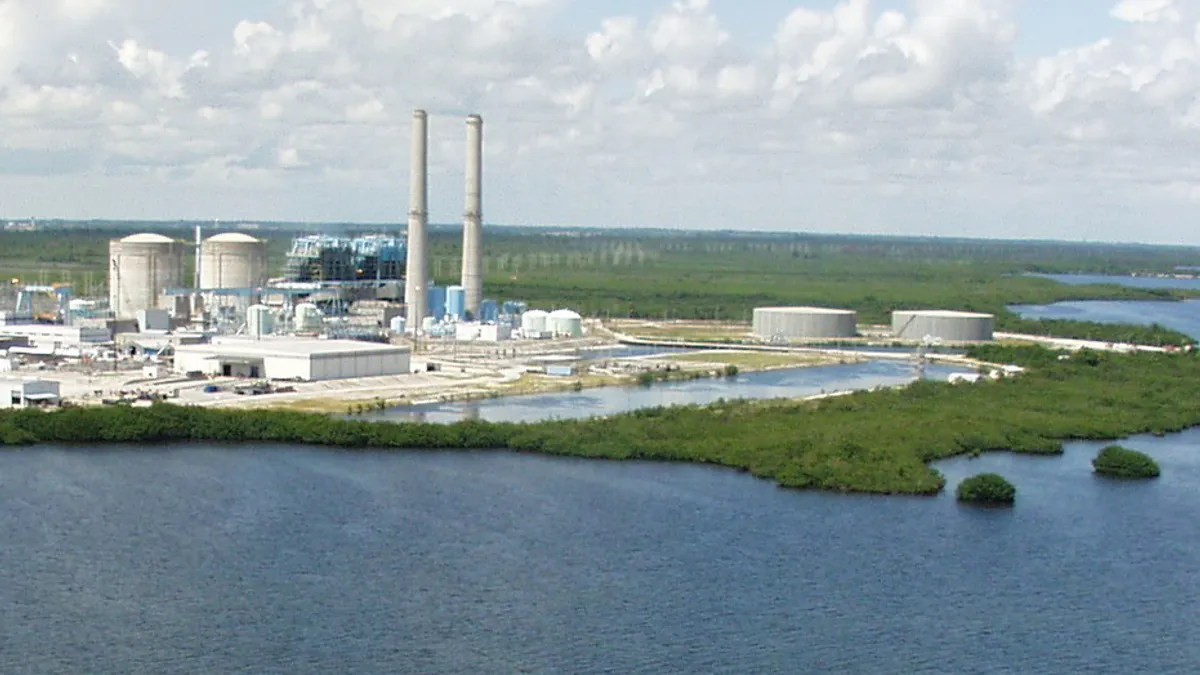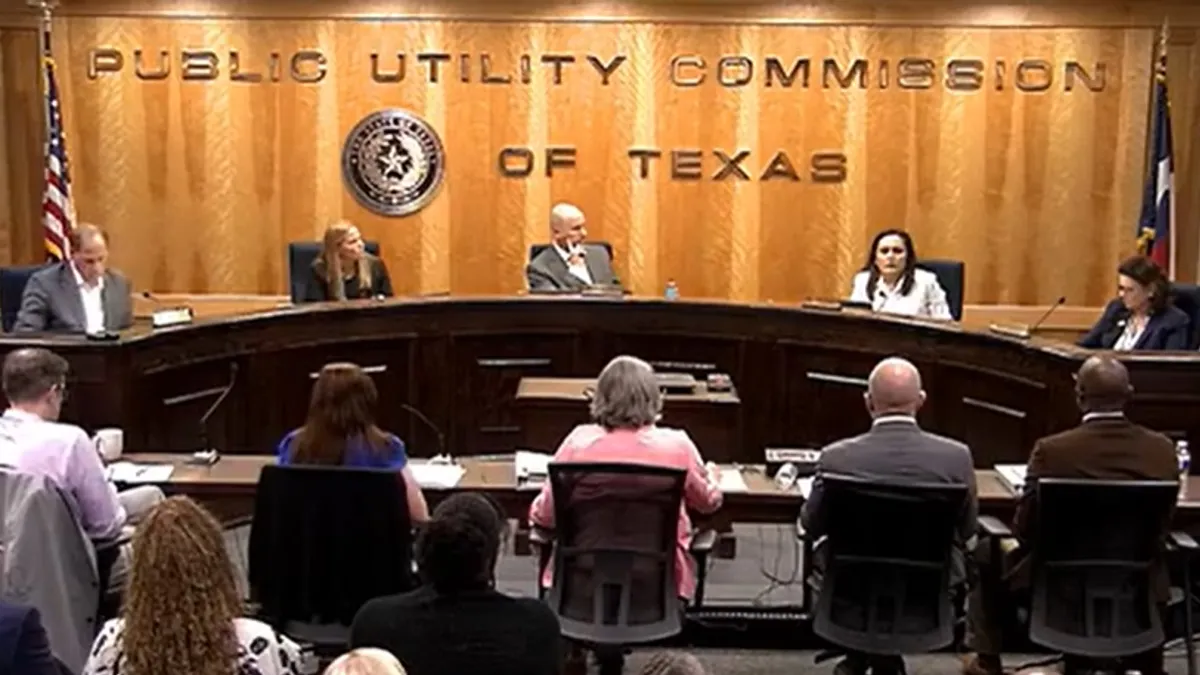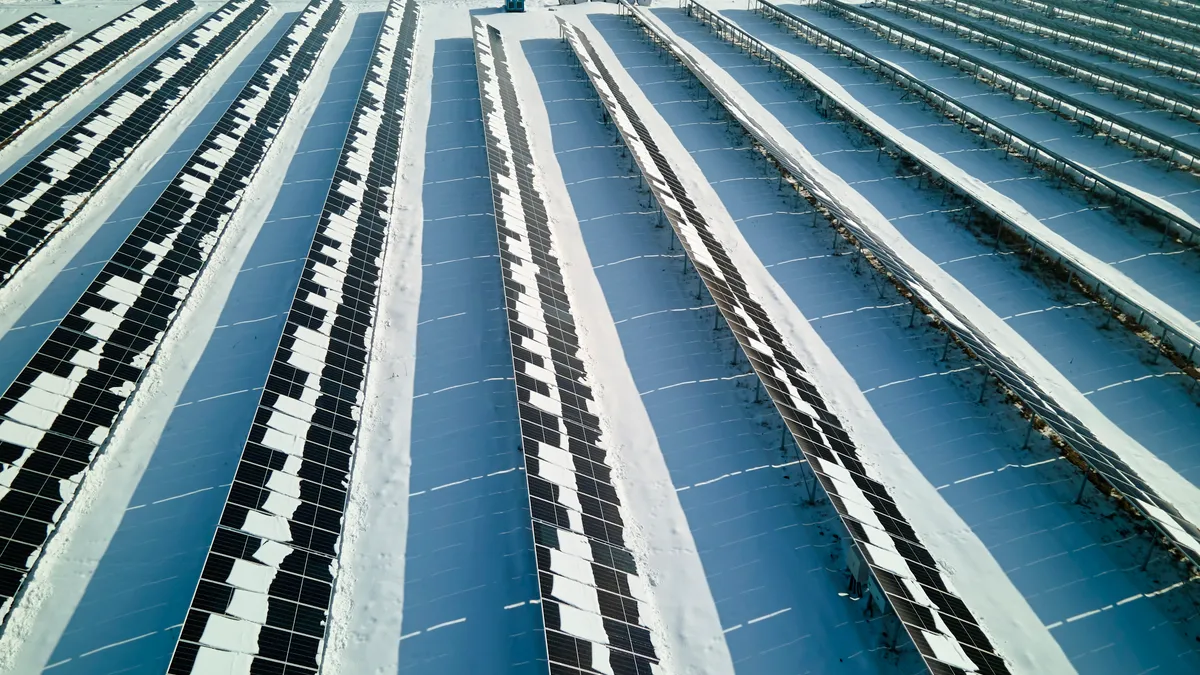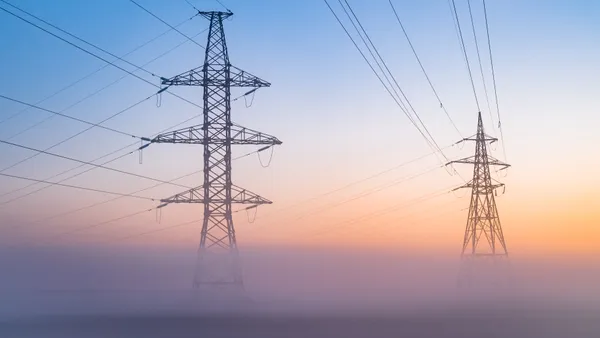Dive Brief:
- Florida Power & Light has filed an initial brief with the state's Supreme Court, arguing it should not be required to bury about 90 miles of transmission line associated with new nuclear reactors it wants to install at its Turkey Point facility, already under scrutiny for a salt plume leakage.
- According to FPL, the two units will cost between $12.8 billion and $18.7 billion and be ready for service in 2022 or 2023.
- In 2014, Florida Gov. Rick Scott approved the project, but opponents took their case to the 3rd District Court of Appeals in Miami, which ruled the state should have required the power lines be buried.
Dive Insight:
About nine months after the 3rd District court struck down FPL's plan to construct the pair of new Turkey Point reactors, the utility has asked the Florida Supreme Court to make changes to how the additional power could be delivered.
Whether to bury 90 miles of transmission line is now at the heart of the case—the lower court determined Gov. Scott should have required FPL pay to underground the lines, leading the utility to question issues of authority. According to FPL, the state's Public Service Commission should have the final say.
"The decision also affects the powers of the Siting Board, the PSC, and local government entities that apply land-use regulations to construction of transmission lines, pipelines and other linear facilities," FPL argued in its initial brief.
The Turkey Point nuclear facility is already operating but as attracted controversy as FPL tries to address cooling canals leaking a salt plume into Biscayne Bay.
In October 2016, local media reported FPL had begun the process of drawing back a salt plume that had leaked into Biscayne Bay. That aquifer supplies 17 billion gallons of drinking water each day for the Florida Keys. The utility's plan includes installation of a recovery system to capture and store hypersalinated groundwater away from drinking water sources.















